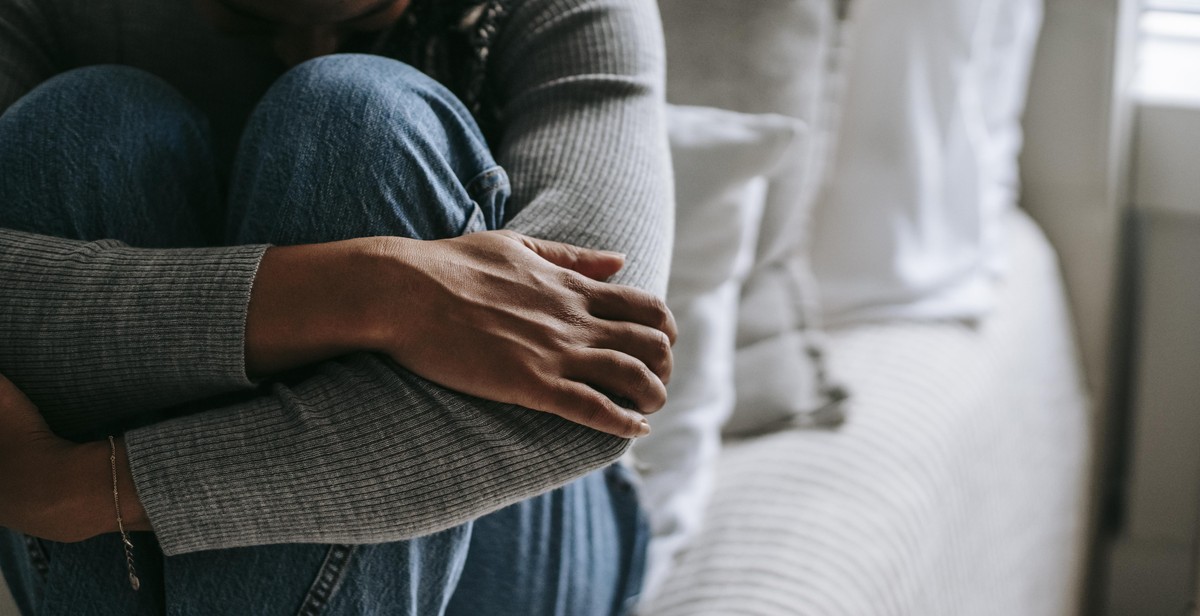Unpacking the Stages of Grief: A Journey of Healing
Grief is a natural and inevitable part of life. It is a journey that we all must take at some point, and it can be one of the most challenging experiences we face. Losing a loved one, a job, a relationship, or even a pet can cause intense feelings of sadness, anger, guilt, and confusion. However, it is important to remember that grief is a process, and it is possible to heal and find peace.
The Stages of Grief
There are several stages of grief, as outlined by psychiatrist Elisabeth Kubler-Ross in her book “On Death and Dying.” These stages include:
- Denial
- Anger
- Bargaining
- Depression
- Acceptance
It is important to note that these stages do not necessarily occur in a linear fashion, and everyone’s experience of grief is unique.
My Personal Experience
As a professional writer and content creator, I have had the opportunity to explore the topic of grief in depth. However, it was not until I experienced the loss of my father that I truly understood the complexity of the grieving process. Through my own journey of healing, I have learned the importance of self-care, seeking support, and allowing myself to feel all of the emotions that come with grief.
A Journey of Healing
Unpacking the stages of grief can be a difficult but necessary step in the journey of healing. In this article, we will explore each stage in more detail and provide tips and resources for coping with grief. Whether you are currently experiencing grief or supporting someone who is, we hope that this article will provide comfort and guidance on the path to healing.

Understanding Grief
At some point in our lives, we all experience grief. It is a natural response to loss – the emotional pain that comes with losing someone or something that is important to us.
What is Grief?
Grief is a complex process that involves a range of emotions, thoughts, and behaviors. It is not something that can be easily defined or measured, as everyone experiences grief differently. However, there are some commonalities that most people experience during the grieving process.
The grieving process is often divided into stages, which were first identified by psychiatrist Elisabeth Kubler-Ross. These stages include denial, anger, bargaining, depression, and acceptance. However, it is important to note that not everyone experiences these stages in the same order or at all.
Types of Grief
There are several types of grief, including:
- Anticipatory grief – when someone is preparing for the loss of a loved one, such as when a family member is diagnosed with a terminal illness.
- Complicated grief – when someone experiences intense and prolonged grief that interferes with their ability to function in their daily life.
- Cumulative grief – when someone experiences multiple losses in a short period of time, such as the death of several family members in a short period.
Common Symptoms of Grief
People experience grief differently, but there are some common symptoms that many people experience, including:
| Physical | Emotional | Behavioral |
|---|---|---|
| fatigue | sadness | withdrawal from others |
| changes in appetite | anger | difficulty sleeping |
| aches and pains | guilt | avoiding reminders of the loss |
It is important to note that everyone experiences grief differently, and there is no “right” or “wrong” way to grieve. However, if you are experiencing intense or prolonged grief that is interfering with your ability to function in your daily life, it may be helpful to seek support from a mental health professional.

The Stages of Grief: A Journey of Healing
Grief is a natural and normal response to any kind of loss, whether it be the death of a loved one, the end of a relationship, or even the loss of a job. The stages of grief were first introduced by psychiatrist Elisabeth Kubler-Ross in her 1969 book, On Death and Dying, and have since been widely accepted as a framework for understanding the grieving process.
Denial
The first stage of grief is denial. This is a defense mechanism that helps us cope with the overwhelming emotions of loss. During this stage, we may refuse to believe that the loss has occurred, or we may try to minimize its impact. For example, a person who has lost a loved one may feel like they are in a dream or that their loved one is still alive.
Anger
The second stage of grief is anger. This is a normal and healthy response to loss. During this stage, we may feel angry at the person who died, ourselves, or even God. We may also feel angry at others who we feel are not supporting us enough during this difficult time.
Bargaining
The third stage of grief is bargaining. During this stage, we may try to negotiate with a higher power, hoping that if we do certain things or make certain promises, we can bring back what we have lost. For example, a person who has lost a job may promise to work harder or take on more responsibilities in hopes of getting their job back.
Depression
The fourth stage of grief is depression. During this stage, we may feel overwhelmed by sadness, loneliness, and despair. We may withdraw from others and lose interest in things we once enjoyed. It is important to remember that depression is a normal and expected part of the grieving process.
Acceptance
The final stage of grief is acceptance. During this stage, we come to terms with our loss and begin to move forward. This does not mean that we forget about our loss or stop feeling sad, but rather that we begin to find a new normal. We may find ways to honor and remember what we have lost while also finding joy and meaning in our lives.
It is important to remember that everyone grieves differently and that there is no “right” way to grieve. The stages of grief are not linear and may not occur in a specific order. However, understanding the stages of grief can help us feel less alone and more prepared for the journey of healing ahead.

Navigating the Stages of Grief: A Journey of Healing
Experiencing the loss of a loved one can be an overwhelming and emotional time. The stages of grief are a natural part of the healing process, but navigating them can be challenging. It’s crucial to take care of yourself, seek support, and create a support network to help you through this difficult time.
The Importance of Self-Care
Self-care is essential during the grieving process. It’s easy to neglect your physical, emotional, and mental health when you’re consumed by grief. However, taking care of yourself can help you cope better and heal faster. You can practice self-care by:
- Getting enough sleep
- Eating healthy foods
- Exercising regularly
- Practicing relaxation techniques such as yoga or meditation
- Engaging in activities that bring you joy and comfort
Seeking Support
It’s okay to ask for help when you’re grieving. Seeking support from friends, family, or a therapist can help you cope with your emotions and feel less alone. You can seek support by:
- Talking to a trusted friend or family member
- Joining a support group
- Seeing a therapist or counselor
- Participating in grief counseling or therapy
Creating a Support Network
Creating a support network can provide you with the emotional and practical support you need during the grieving process. You can create a support network by:
- Reaching out to friends and family who can offer emotional support
- Asking for help with practical tasks such as cooking, cleaning, or running errands
- Joining a grief support group to connect with others who are also grieving
- Considering online grief support groups or forums for additional support
| Stage of Grief | Description |
|---|---|
| Denial | Feeling shocked and unable to accept the reality of the loss |
| Anger | Feeling angry and frustrated about the loss |
| Bargaining | Trying to negotiate or make deals to reverse the loss |
| Depression | Feeling sad, lonely, and hopeless about the loss |
| Acceptance | Coming to terms with the loss and beginning to move forward |
Navigating the stages of grief can be a challenging journey, but taking care of yourself, seeking support, and creating a support network can help you heal and find peace. Remember that grief is a natural part of life, and it’s okay to take the time you need to process your emotions and find a way forward.

Moving Forward: A Journey of Healing
Dealing with grief can be a long and difficult process, but it’s important to remember that healing is possible. Here are three steps you can take to move forward:
Honoring Your Loved One
One of the most important things you can do when dealing with grief is to honor the memory of your loved one. This can be done in many ways, such as creating a memorial or tribute in their honor, or participating in activities that they enjoyed. By keeping their memory alive, you can find comfort and solace in knowing that they will always be with you.
Finding Meaning and Purpose
Another important step in the healing process is finding meaning and purpose in your life. This can be done by setting goals, pursuing new interests, or volunteering in your community. By focusing on the positive aspects of life, you can find a sense of purpose and fulfillment that can help you move forward.
Embracing Life
The final step in the healing process is to embrace life and all that it has to offer. This means letting go of the past and focusing on the present and future. It means finding joy and happiness in the little things, and making the most of every moment. By embracing life, you can find peace and happiness in the midst of grief.
Remember, healing is a journey, not a destination. By taking these steps, you can move forward and find a sense of peace and happiness in the midst of grief.
